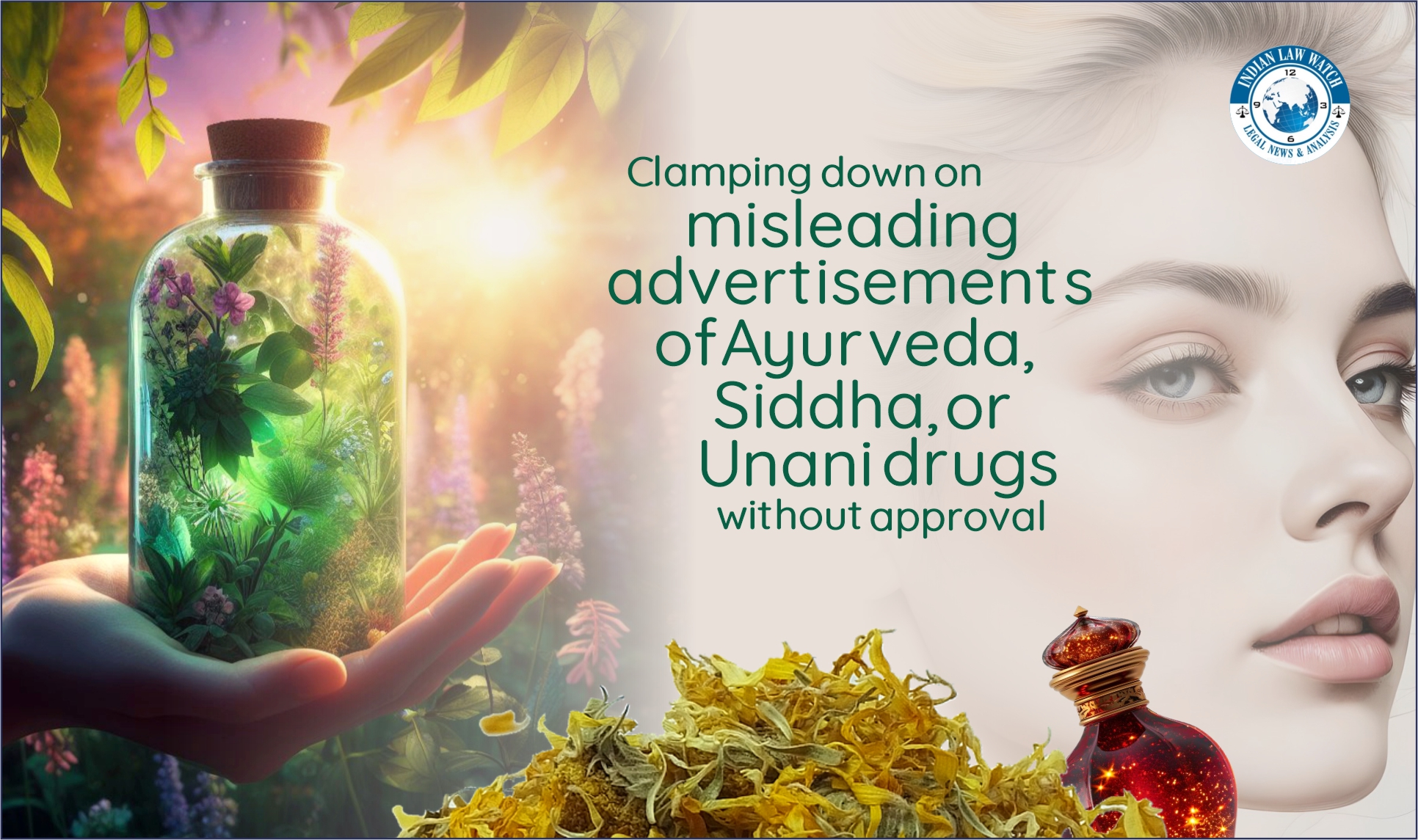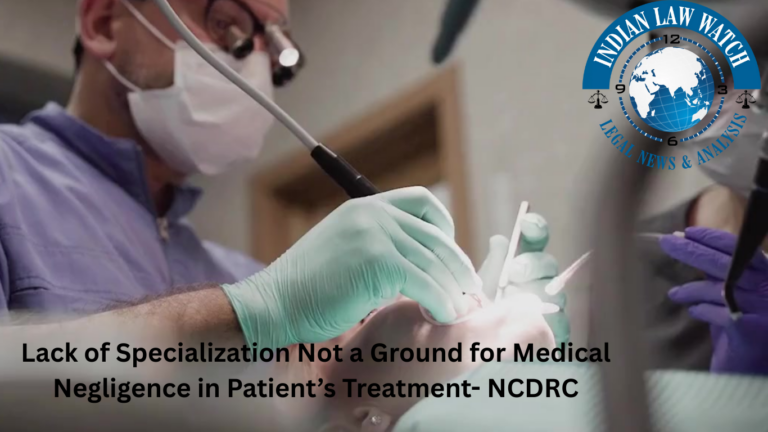

The Supreme Court stayed a Central government notification dated 1 July 2024, in which Rule 170 of the Drugs and Cosmetics Rules, 1945, was omitted. A bench comprising Justices Hima Kohli and Sandeep Mehta passed the order, observing that the omission contravened the Court’s order dated 7 May 2024. Rule 170 prohibits the advertisement of Ayurveda, Siddha, or Unani drugs without approval. This Rule was challenged at most courts in India. The Ministry of Ayush received numerous complaints of misleading advertisements. The Advertisement Council of India (ASCI) dealt with 960 complaints between 2017 and 2018-the enforcement of the Drug and Magic Remedies Objectionable Advertisement Act, 1954, vest with the State Government. The top court had in May questioned the Centre over a 29 August 2023 letter by the Ministry of Ayush asking the licensing authorities not to initiate or take any action under rule 170 of Drugs and Cosmetics Rules, 1945.
Clamping down on misleading advertisements, the apex court on 7 May 2024 directed that before an advertisement is permitted to be issued, a self-declaration from the advertisers be obtained on the lines of the Cable Television Networks Rules, 1994.
“Instead of withdrawing the letter dated 29 August 2023, for reasons best known to the ministry, the notification dated 1 July to omit Rule 170 of the Drugs and Cosmetics Rules, 1945, has been issued, which runs contrary to directions issued by this court…
Recent developments on Issue of Misleading advertisement
Dr Babu KV, an RTI activist who pursued the case against Ramdev and Patanjali for alleged misleading advertisements, hailed the SC order as a significant development in regulating drug advertisements. The top court was hearing a case filed by the Indian Medical Association (IMA), a vigilant watchdog of the healthcare system, which alleged that Patanjali Ayurveda’s advertisements, claiming to cure certain diseases, including blood pressure, diabetes, and asthma, were spreading misinformation.
“It is completely wrong to advertise such diseases,” the IMA said, reaffirming its commitment to protecting public health.
In its earlier order on February 27, the apex court had restrained Patanjali from advertising or branding products manufactured and marketed by it that are meant to address ailments/diseases/conditions mentioned under the Drugs and Magic Remedies (Objectionable Advertisements) Act 1954 and the Rules. On August 13, the SC, in a significant relief to famous yoga guru Baba Ramdev and his associate, Patanjali’s Managing Director Acharya Bal Krishna, ordered the closure of the contempt case against them in the misleading advertisements case. The apex court passed the order closing the contempt case and all the proceedings after Ramdev and Balakrishna gave it an undertaking to stop issuing misleading ads and other claims regarding Patanjali products.
Rule 170
The Drug and Cosmetics Act of 1940 created the Ayurveda, Siddha, and Unani Drugs Technical Advisory Board (ASUDTAB) to advise the central and State Governments on the provisions of Chapter IV A-Provisions relating to Ayurveda, Siddha, and Union. In 2018, misleading advertisements were included under Pharmacovigilance. The Ministry of Ayush has repeatedly approached different state governments to take action on misleading advertisements. Rule 170 was inserted to prohibit the advertisement of ASU drugs without the State Licensing Authority’s prior checking of the advertisement. The Central government also has the authority to prohibit any advertisement of ASU drugs under the rule.
The Drugs and Cosmetic Acts 1940 and Rules 1945 were passed to regulate the manufacture, import, sale and distribution of drugs and cosmetics. The main objective of the Act is to avoid substandard medicines and maintain a high standard of medical treatment. There are two schedules to act and 25 Schedules to rule. Drugs and Cosmetics rules have been divided into 19 parts containing 170 rules. Of these 170 Rules, from 151 to 170 are applicable for Ayurveda, Siddha or Unani drugs. Rule 170 was added later in 2018, mainly against misleading advertisements for Ayurveda, Siddha, and Unani drugs. This rule ensures the accuracy and safety of the promotional materials.
Rule 170 became controversial as it was omitted in 2023 by the meeting held between the Ministry of Ayush and the ASU Drug Technical Advisory Board under section 33P of the Drugs and Cosmetic Act 1940. It was notified that all states/UTs licensing authorities are hereby directed not to initiate/take any action under rule 170 of the Drugs and Cosmetic Rules, 1945. However, the final notification for the omission of Rule 170 and its related provisions mentioned in the Drugs and Cosmetics Rules, 1945, will take some time. It creates a dilemma in public regarding the omission of Rule 170, whether it is wholly omitted or not.

The articles emphasise the significance of the Supreme Court’s intervention in staying the Ayush Ministry’s notification that omitted Rule 170 of the Drugs and Cosmetics Rules, 1945. This intervention underscores the Court’s commitment to regulating misleading advertisements, particularly those related to Ayurveda, Siddha, and Unani medicines. The development highlights the ongoing legal and regulatory battles concerning enforcing advertising standards for traditional medicines, with the Supreme Court’s actions reinforcing the importance of accurate and responsible advertising.





